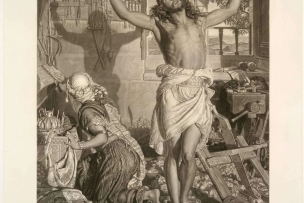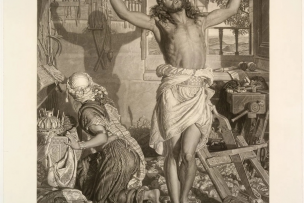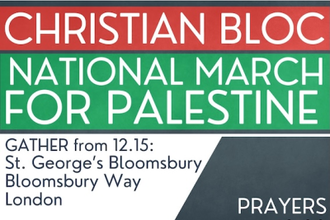Irish priests and lay groups reflect on new Missal

The Irish Association of Catholic Priests (ACP) met in Portlaoise on Thursday, 2 June, to listen to the reflection of its members and representatives of lay groups and religious on the new Missal. At a meeting in January the leadership had been asked to meet with the bishops with a view to having the implementation of the New Missal postponed for five years.
More than 100 people attended the meeting. Fr Tony Flannery introduced the facilitator Mr Martin Kennedy. He called on Fr Seán McDonagh to report on the meeting between a delegation from ACP and the Episcopal Commission for Worship.
Fr Seán stated that a meeting with the Commission for Worship, Pastoral Renewal and Faith Development took place at Maynooth on 28 February. A number of priests from the ACP shared their well researched concerns about the adequacy of the new translation from pastoral, liturgical, theological, linguistic and cultural perspective. Unfortunately, he said, the response from Bishop John McAreavey, Fr Paddy Jones and Bishop Seamus Freeman had been disappointing.
Fr Seán said worse was to come. In a letter to the ACP the Commission did not address any of the substantive pastoral, theological, linguistic and cultural concerns raised at the February meeting. This took place at a time when the bishops issued their pastoral letter entitled 'Towards Healing and Renewal'. In this document the bishops stated that “one of their greatest failures in the past was a failure to listen.”
Martin Kennedy then asked the theologian Angela Hanley to share her reflections on the new Missal. She spoke for about 10 minutes. She called attention to a number of particularly historical moments in the life of the Catholic Church since the Second Vatican Council. The first was the way that the Encyclical Humanae Vitae was implemented and, especially, the treatment which was meted out to those who raised questions about it. The second was the refusal of the Catholic Church in Ireland and right around the world, to face up to the clerical abuse scandals in the 1970s and the 1980s. The third moment she highlighted was the Apostolic Letter of Pope John Paul II – Ordinatio Sacerdotalis in which he stated that women could not be ordained to the priesthood. The fourth moment was the imposition of translation of the new Missal without adequate consultation.
Angela Hanley identified two elements which are common in all of these moments. First, an unwillingness on the part of Church leaders to believe that they can err, despite numerous examples in history. Second, a belief, that despite the teaching of Vatican II, all competence for administration within the Church is vested in one person – the Pope.
Angela said that a paradigm shift or Copernican revolution in our understanding of the Church was needed. The Church does err and history has shown this to be true, she said. This, however, does not conflict with our belief that the Holy Spirit remains with the Church to protect it and save it from error. The Spirit works in and through all of us, through our gifts, though our challenges, and through our discernment of failure – when we assess our mistakes and learn from them, she explaned.
Angela went on to say that the current English translation of the missal is "wrong". She said having it forced on us compounds that wrong. The question remains - what are we going to do about it? She suggested that it would be easy for the ACP to say: “we have made our views known, we have challenged it on different grounds and there is nothing else we can do.”
“All that is left now,” she said, ”if the five year moratorium is not accepted, is to refuse to implement the translation. You cannot be forced to act against your conscience. Look at history – there is a record of peace-loving individuals using passive resistance to avoid collusion with oppressive regimes.”
There would be costs, for priests and for people in the pews. She said people could also be passively resistant by choosing to be silent in Church and offer no response.
Angela concluded by saying this was a"pivotal moment" in the Church – and no one who has been in any way involved with the "forced implementation" of this missal will have the luxury to look back and say, "if only we had known...."
Fr Brendan Hoban then addressed some of the challenges which now face lay Catholics, priests and bishops, when the new missal is introduced.
He asked: How, as priests, do we deal with the anger of our people who realise that they have not been consulted about the language we use at the liturgy?
How do we deal with the prevalence of exclusive language? This is not merely a problem for women it also affects many men as well.
How do we deal with the confusion of our parishioners as they struggle with inserts which change the liturgy with which they have become familiar over the past 30 years.
How do we deal with the ridicule of those who have opted out of active participation in the Church and now feel confirmed in their wisdom?
If a priests feels that it is impossible for him to intelligently read a prayer with 60 or more words per sentence, what is he supposed to do?
If a priest feels that, for pastoral and linguistic reasons, he cannot use the new Missal, is he confronted with making a decision to use either the new Missal, the Tridentine rite or not saying Mass at all?
Brendan asked what could be done to avoid the growing rift between bishops and priests which will be further exacerbated by the imposition of the new Missal?
What can be done to repair the growing division with Rome, who despite our service and particular competence in the practical area of liturgy, refused to consult us?
At present there is a derogation for people who wish to say the Tridentine Latin Mass even though there is minimal demand for this among priests or laity. Why cannot there be similar derogation for those who wish to use the present form?
Should we call on Irish Bishops to accept that some priests, who have serious difficulties with the new Missal, be given an opportunity not to use it?
If the changes are found to be unworkable and congregations are reduced to silence, do the Irish Bishops have a plan B for the celebration of the Eucharist in our parishes. Will they revisit the issue in the autumn of 2012 and use professional surveys to ascertain how the new Missal is being received by the people?
A reference was made earlier to the comments of Archbishop Bugnini, the architect of the Vatican II liturgical reforms. In his book The Reform of the Liturgy page xxvii) he wrote: “The work of experts needed to be ratified in the minds of ordinary folk if the change was to find acceptance in the soul of the people.”
After these presentations, Martin Kennedy facilitated a lively discussion for more than one hour. Every one of the 25 + people who spoke, criticised both the translation itself, the lack of consultation involved in the process and the authoritarian way in which these faulty texts are being imposed on the Irish Church. Words and phrases such as “dominance,” “control,” “incompetence,” “bullying,” “lack of courage” and “fascism” were used by many of the speakers. Even though there was anger and frustration in the room, everyone who spoke, either in critiquing the new Missal itself or the processes involved in it imposition, did so out of a concern for the wellbeing of the Catholic Church in Ireland Many of those who spoke said that the Bishops are more responsive to Roman bureaucrats than the concerns and pastoral expertise of their priests and people. The Bishops have authority when it comes to liturgical matters. This is clear in The General Instruction on The Roman Missal, which states that, each Conference of Bishops may establish additional norms for its territory to suit the traditions and character of the people, the region and the various communities” (No. 6). The German bishops showed courage in not accepting the new translation, why did the Irish Bishops not take a similar stand?
One of the most interesting comments at the meeting came from a priest from the West of Ireland. He spoke of a recent meeting in Knock where priests from the four dioceses of Tuam, Achonry, Clonfert and Killala met for a training day on the new Missal.
The meeting began at 11.30am. Bishop John McAreavey was expected to speak for 45 to 50 minutes on the new texts and then allow time for questions. Unfortunately, the bishop continued speaking until 12.50 pm, when the meeting broke up for lunch.
The meeting resumed at 2.30pm and the bishop was about to continue his talk and deal with some of the texts when a priest stood up and expressed the frustration of the priests at not having an opportunity to ask questions. He, and many others, expressed their annoyance at not being listened to during the preparation of the texts.
The Knock meeting itself was another example of bishops not listening to reasonable questions and concerns. He was followed by more than 20 other priests. All but two criticised various aspects of the Missal and the fact that priests are not listened to by either the Irish Bishops or Roman authorities. One priest was amazed with Bishop McAreavey’s explanation that, “I believe” instead of “We believe” in the new translation of the Creed could be explained by saying that the “I “ was a “corporate I,” and therefore really meant “we.”
This intervention was very important because a number of supporters of the new Missal are claiming that priests are in favour of it because they are not challenging it at these clergy meetings. The fallacy here is that, in many of these meetings, they are not being allowed or encouraged to express their opinions.
All of the women who spoke criticised the pervasive use of sexist language as both insulting and incompetent. One stated categorically that she will never use it.
Obviously, the translators have not heard that “man” is no longer a common noun in contemporary English.
Towards the end of the meeting a recommendation was unanimously adopted that priests and people avoid using the sexist language that pervades the New Missal.


















